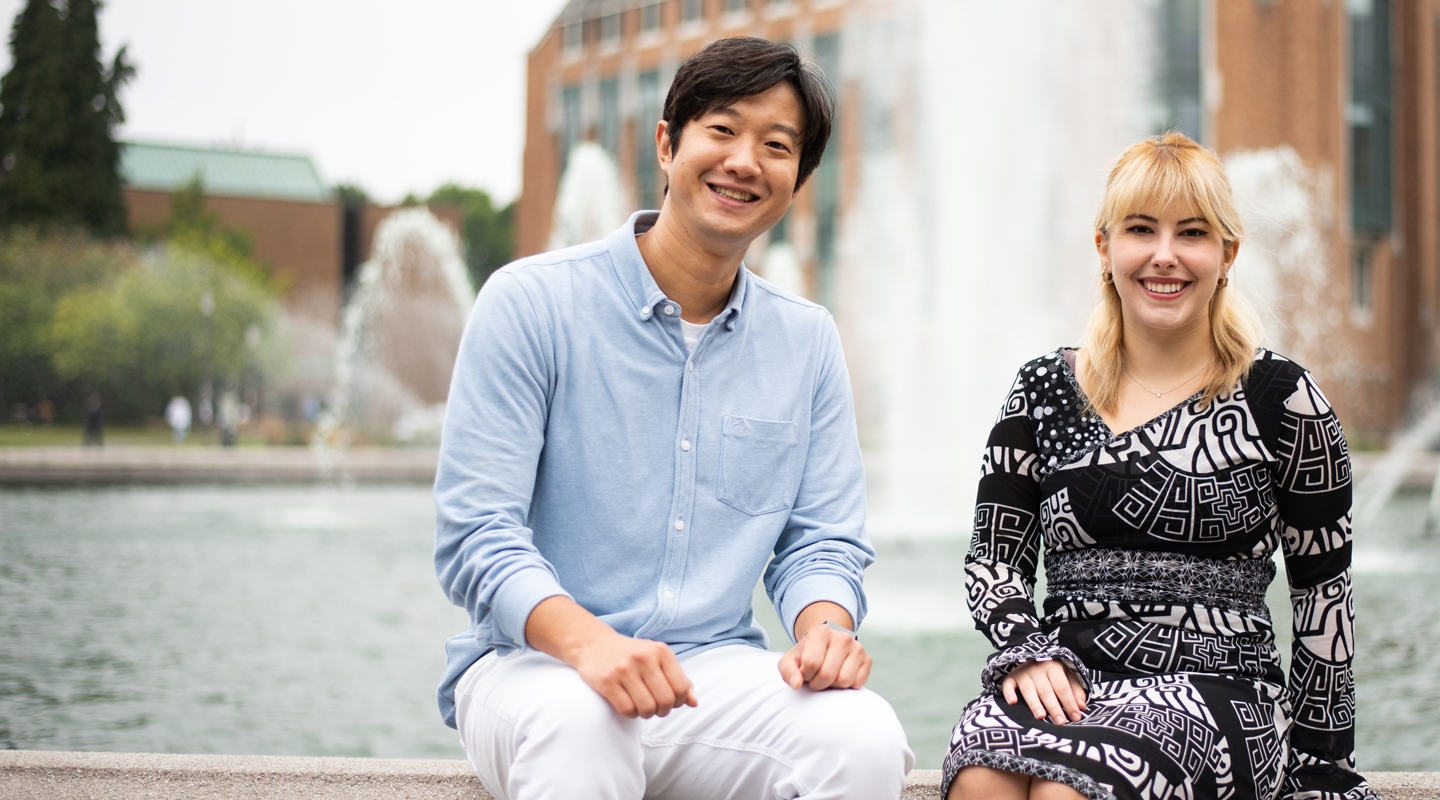Misinformation is everywhere, and it gets more sophisticated all the time: doctored photos, made-up news stories, fake videos so convincing it’s nearly impossible to spot the deception. What people believe drives how they act, and this misinformation has real-world, sometimes dangerous, effects.
iSchool students are helping tackle this problem while gaining experience in running and interpreting research projects.
Yeonhee (Johnny) Cho and Lidia Morris (pictured above), who are both earning Ph.D.s in Information Science, are working on misinformation escape rooms — games in which players work together to solve a series of puzzles. The escape rooms are a project from the Center for an Informed Public, in partnership with the Technology & Social Change Group, GAMER Research Group and Puzzle Break.
Misinformation is extremely hard to combat, and the researchers are attempting to understand whether game-based learning can be a way to help people recognize misinformation tactics.
“I believe that games have power as a medium to teach and guide people in a different way,” Cho said. “It’s not just a fun way to teach people. It engages people and participation increases people’s motivation.”
Cho helped with a participatory design process to create the game. In “The Euphorigen Investigation,” the first escape room game created for the project, players imagine themselves as journalists and collaborate to figure out whether a company is selling a dangerous product.
The game can be played online or in-person, with someone such as a librarian or a teacher to serve as a game host. The goal is to get people talking and thinking about misinformation and help them spot it in the future.
He explains that people often think that only other people get tricked — that they themselves are somehow immune. But the game shows anyone can be susceptible.
Cho is now interested in seeing how the game can be adapted for different audiences. He also wants to do more research to understand how people learn when they are playing a collaborative game, rather than a traditional competitive game.
Working on this project has increased Cho’s interest in the topic of misinformation. He has even made it his focus for the general exam he will take to earn his Ph.D.
Morris joined the project after “The Euphorigen Investigation” had already been built. She and Cho both worked with directed research groups (DRG), which gave students a chance to participate in the research. Cho and Morris helped lead the DRG, which analyzed results from test players and looked for ways to adapt or improve the game.
“Misinformation is not a topic, it’s a tactic,” Morris said. “It is way of spreading false information in a way that makes it seem true. … Misinformation is scary. It can harm everybody and anybody. We need to inform people of it and we need to give them these tools to combat it.”
Morris also worked with Jin Ha Lee, an iSchool professor who is the director of the UW Game Research (GAMER) Group, on a variation of the game for ARMY, the BTS fandom. Lee and Morris are both big BTS fans. The project brought fans, including academics, librarians and other academic professionals, together to brainstorm ideas for a new narrative. They created fake tweets and videos, for instance, to cater better to the fandom. The new version of the game has been tested, but is not yet widely available.
Morris enjoyed working with a community that was important to her — and said she appreciates that it shows the game can be tweaked to work for different audiences.
Chris Coward, a senior principal research scientist at the iSchool and a co-founder of the Center for an Informed Public, said the earlier work has built a foundation for new projects, including combating cancer-nutrition misinformation, as well as misinformation directed at the Black community. Additionally, the researchers have partnered with iSchool Associate Professor Jason Yip to co-design games with children to address the ways in which younger people encounter and think about misinformation.
Coward said Ph.D. students are a vital part of work like this. It’s good for the students and it’s good for the research.
“It gives students a lot of hands-on experience working with more senior researchers,” he said. “It exposes students to different questions, approaches and methods so that they are better equipped to embark on their own research careers. They get a lot out of it. We get a lot out of it, too. They bring their own backgrounds, perspectives, and creativity to the work.”
